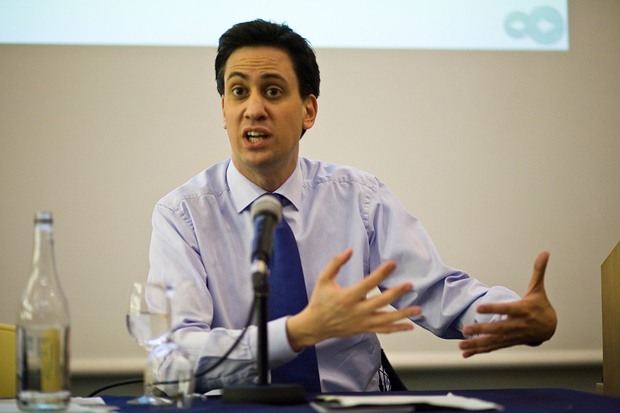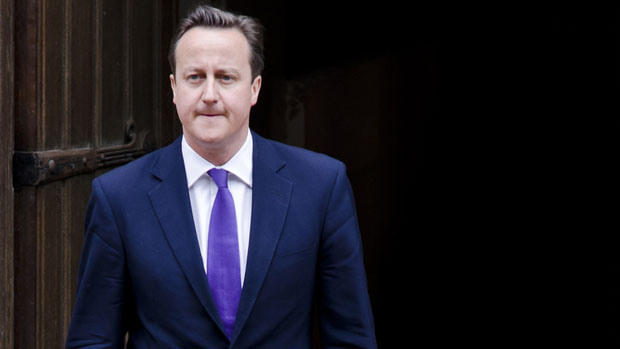27 Jan 2014 | Libya, News and features, Politics and Society

Jamal al-Hajji was convicted of defamation on 31 December 2013. (© Amnesty International)
After 42 years of political oppression in Libya, it was hoped that the apparatus of Gaddafi’s regime would be dismantled after he was swept from power. Vestiges of the despot’s suffocating grip on free speech still remain, and are still being used to suppress political expression.
Jamal al-Hajji, a writer and commentator from Tripoli, faces jail and a large fine after comments he made in a television interview in February 2013 sparked a defamation case by government figures. During an interview on al-Wataniya, a Libyan television channel, al-Hajji accused the Minister of Foreign Affairs, Mohamed Abulaziz and five other politicians and public figures of conspiring against Libya and the “17 February Revolution”.
Four of them lodged a complaint against al-Hajji, resulting in a court sentencing him to eight months in prison and a 400,000 Libyan dinar fine (around £200,000). His case is being supported by Amnesty International, who say relics from Gaddafi’s punitive legal system are being used to obstruct free speech.
“No one should be sent to prison for expressing their views. Free expression is one of the rights Libyans took to the streets to reclaim during the 2011 uprising against Muammar al-Gaddafi,” said Hassiba Hadj Sahraoui, Deputy Director of the Middle East and North Africa Programme at Amnesty International, in a statement issued on Amnesty’s website.
The charity’s Libya researcher, Magdalena Mughrabi, told Index on Censorship: “The Penal Code which is currently in use is the same as under al-Gaddafi. The Libyan authorities should immediately amend or repeal all laws and articles of the Penal Code which impose arbitrary restrictions on freedom of expression.”
Al-Hajji, now aged 58, was arrested a number of times by the Gaddafi regime — the first time in 2007 for organizing a peaceful gathering to commemorate the deaths of 12 protesters at a 2005 demonstration in Tripoli.
He spent a year in jail without charge, and was then sentenced, by the State Security Court, to twelve years imprisonment. Luckily, he was released a year later and submitted a formal complaint to the authorities, criticising the justice system, maltreatment of prisoners, and the torture and arbitrary detention of Libyan citizens.
The authorities summoned him for questioning over the document and threw him in prison for a further four months.
In 2011, he was arrested once more by police officers, who accused him of hitting a man in his car. At the time he was advocating online for peaceful protests mirroring those which had been happening in Tunisia, Egypt and other states across the Middle East.
And now, even with a new transitional regime in place, al-Hajji has found himself in prison again.
When asked if he thought the revolution had been successful, al-Hajji told Index on Censorship: “It is still going on and will continue, it will not stop until we have freedom. The military are not ready to lead this country so we will fight to remove them until we get a proper, working democracy.”
“I wouldn’t call this a new regime, these people aren’t responsible enough to run a country and in any case, many are from the old Gaddafi regime. They don’t want the laws changed because they know any new laws could be used against them.”
The law used to convict al-Hajj was Article 439 of the Libyan Penal Code, which carries a punishment of up to two years in prison as well as a fine. Several other articles of this Code prescribe prison terms for activities that would commonly be understood as freedom of expression and freedom of association. In cases where someone criticises public officials or state institutions, the recommended punishment can be the death penalty.
The same laws were used in September 2013 to charge Moad al-Hnesh, a Libyan engineer aged 34, who had campaigned against Western intervention into Libya in 2011. While living in the UK, he participated in a Stop the War Coalition demonstration outside the House of Commons in London, during which he was photographed holding a photo of a purported victim of a NATO bombing.
Following his return to Libya, he was arrested on 3rd April 2012 by a militia from Zawiya, after a group of Libyan students who had met him at Coventry University lodged a complaint against him with the Zawiya Military Council. He now faces a life sentence for criticising Libya while abroad, or a reduced sentence of fifteen years for “publically insulting the Libyan people.”
Amara Abdalla al-Khattabi, a journalist aged 67, was arrested in December 2012, a month after his newspaper had published the names of 84 allegedly corrupt judges. He was charged with “insulting constitutional or popular authorities” and also faces up to 15 years in prison. Article 195 of the Penal code was frequently used in the al-Gaddafi era to repress freedom of expression.
Al-Hajji is currently on bail and has an appeal hearing scheduled for 13th February.
This article was posted on 27 January 2014 at indexoncensorship.org
24 Jan 2014 | Africa, Kenya

Leonardo DiCaprio at the recent British premiere of The Wolf of Wall Street in London (Image: Info100/Demotix)
Two people have been arrested in Nakuru, Kenya, for selling The Wolf of Wall Street, reports The Standard Digital News. Five hundred copies of the film were also confiscated.
The two could face up to five years in prison and/or a fine of 100,000 Kenyan shillings for being in violation of Section 12 of the Kenya Film and Stage Plays Act. Among other things, it prohibits the distribution of films not approved by the Kenya Film Classification Board. The Oscar-nominated Hollywood film was last week banned by the board.
“There is a LIMIT to everything and we believe the Kenyan public deserves better. WOLF OF WALLSTREET has been RESTRICTED. The film is NOT for sale, exhibition or distribution in KENYA. Violators shall be PROSECUTED,” read the statement on their official Facebook page.
On Wednesday, the board announced “a crackdown” on the same page: “A crackdown was started countrywide to check on UNRATED content and restricted films. MANY have already been arrested and will be prosecuted. Please, be warned that KFCB and the POLICE are on the look-out for violators.” Earlier today, they posted a link to a news story of the arrests, accompanied by the message “The crackdown is still on-going…”
“We support the board in carrying out its responsibilities. It is our wish to see a society that upholds morals and good values. This movie was banned long time ago and those found selling it should face the law,” said Nakuru Sub-County Commissioner Thomas Sunkei.
This article was posted on 24 January 2014 at indexoncensorship.org
24 Jan 2014 | News and features, Politics and Society, United Kingdom

If you want to know what a party stands for, watch its leader’s speeches. But if you want to know what they’re going to do, read their proposed legislation.
It’s in the details that you learn what a party is all about. Ed Miliband has made several set-piece speeches promising a Labour commitment to civil liberties. But dig into the legislation they support and you find the same old attitudes, making the same old mistakes.
Backbench Labour MP Thomas Docherty has a private members bill going through the Commons today called the Armed Forces (Prevention Of Discrimination) Bill. It’s a shoddy piece of work. He wants assaults – verbal or physical – against members of the armed forces or their families to be treated as aggravated. And he wants them to be included in equality legislation prohibiting discrimination.
None of this should be worth mentioning. Backbench MPs have all sorts of embarrassing and reprehensible ideas, the majority of which never see the light of day. But this time Labour swung its weight behind the private members bill. Shadow defence secretary Vernon Coaker said the party would back Docherty’s efforts and demanded the government do the same.
Coaker was playing a game of chicken with the Ministry of Defence. It would win him a good write-up in the red-tops, a part of the press Labour is struggling to get any traction with. And he guessed that the fear of looking insufficiently supportive of ‘our boys’ would force defence secretary Phillip Hammond’s hand.
Had he considered what the proposals might actually entail for freedom of speech, Coaker might have thought again. But consideration and populism do not make good bedfellows.
The bill would blur the boundaries of discrimination, so that it no longer refers only to who you are, but what you do. This would be a massive legal change. No longer would discrimination law only apply to fundamental human qualities like sexuality or race, it would now be expanded to include commentary on what someone does in their working life.
It would do this in two ways. Firstly, it would expand the common use of aggravated assault from race and religion to membership of the armed forces. Secondly it would include membership of the armed forces under the Equality Act’s protections against discrimination in the provision of goods and services.
The ways in which this type of lazy lawmaking can be abused are not difficult to imagine.
Imagine the squaddies who enter a pub, loud, drunk and aggressive. Unfortunately, this is not rare. Recent Lancet research showed a strong correlation between aggressive behaviour in Britain and psychological trauma experienced in overseas theatres like Afghanistan and Iraq. This puts the barman in an unenviable position. If he allows them in, he risks violence. If he bars them, he is subject to prosecution under equality legislation.
Imagine the anti-war campaigner arguing with the squaddie about whichever conflict Britain is involved in at the time. How strenuous do his arguments have to be before we decide they constitute ‘verbal assault’? If he tells the squaddie that he spilled blood for oil? Or that soldiers are baby killers? The law threatens to criminalise anything but the most tepid and restrained anti-war argument.
Most importantly of all, what precedent does it set? How long will it be before other professions are entitled to protection under equality law? The police would follow the armed forces soon enough. And after them would come the MPs. It is not hard to imagine a situation in which a banker is attacked by a mob and politicians then include them in the blanket of extra legal rights.
Before we know it whole professions would enjoy much stronger legal protections than the rest of the population. The bill is a threat against the principle that all British subjects have equal rights and freedoms.
Mercifully, the government has not taken the bait. An MoD spokesperson told me they didn’t believe legislation was necessary, but that they were instead pursuing their voluntary ‘corporate covenant’ with the armed forces.
But Labour’s decision to swing its weight behind this dangerous bit of populism speaks volumes about the party’s approach to these issues. Despite Miliband’s high talk about civil liberties when he took the leadership of the party, it still appears to have the same crude, dismissive view of freedom of speech as it did under Tony Blair and Gordon Brown.
It’s the same old deal. They are willing to trade away British legal standards in exchange for a good write-up in the Sun.
This article was posted on 24 January 2014 at indexoncensorship.org
24 Jan 2014 | Digital Freedom, News and features, United Kingdom

(Image: Velvet/Demotix)
It wasn’t meant to be like this.
Connoisseurs of a good political bust-up may have noticed a subtle change in tempo to the online filtering debate over the Christmas period. For the argument, so long owned — in public at least — by the pro-blocking “think of the children” lobby took a sudden and unexpected twist. For a moment, the villains were not selfish libertarians, determined to place personal freedom of expression above child protection — but the incompetents in government, who had demanded a solution that was untested without first ensuring they weren’t doing more harm than good.
What went wrong?
As German military strategist Helmuth von Moltke, in the news during this World War anniversary year, once put it: “no plan of operations extends with any certainty beyond the first contact with the main hostile force”.
It was always going to be an easy win, banging on about the need to protect children and threatening internet service providers with legislation if they didn’t comply with prime ministerial demands over filtering: easy, too, to dismiss the assorted nerds and geeks who warned it wouldn’t work. As a prime ministerial adviser on this topic, Claire Perry, MP put it: “We should not allow the perfect to drive out the good”.
But since November, filters have arrived with a vengeance and even the technologically naive can see that they don’t exactly work as claimed. A BBC expose in December revealed what was always expected: They over blocked some quite useful sites, including sites dealing with LGBTI issues, sex education and even domestic violence and rape, while simultaneously under blocking a lot of porn.
Ooops!
“Not us, guv,” explained a spokesperson for Number 10. Back in July 2013, David Cameron had very presciently blocked all possible blame by requesting the UK Council for Child Internet Safety (UKCCIS) make sure this sort of thing didn’t happen. UKCCIS, a body composed approximately 50% from those with a commercial interest in this area, set up a sub-committee which met in December 2013, some weeks after the first of the new filter solutions hit parental laptops. No minutes, though: open government has been filtered!
Meanwhile, much wordage was being unleashed in the minority and progressive press. Rather like stories about government losing databases a few years back: No sooner had the press happened on one instance of ridiculous blocking, then another even more ridiculous case joined the queue.
In the circumstances, to list the legion legitimate sites that were in one way or another blocked would be tedious. So let’s stick with some of the most serious. BT, it transpired, was offering parents the opportunity to bar access to LGBT material — almost certainly direct discrimination — as well as access to social support.
In other words, if you are a child abuser or perpetrator of domestic violence, just go BT — and you can shut off one avenue to support for your victims. The filter is still available — though BT have tactfully amended the marketing description.
Two firms — Trend Micro and Dell — were also found to be selling a tool that permitted explicit blocking of LGBTI content: both, following exposure by GayStarNews, have subsequently amended their product.
It is unlikely that opinion swung irretrievably against blocking and filtering, but it is clear that the public, now aware of what those techniques mean in practice are suddenly a lot less impressed by political demands for UK providers to censor their net habits.
Along the way came something of an own goal. The latest initiative relates only to filtering and blocking of internet access through pc portals. Mobile phones have been subject to a filtering regime — largely unnoticed — since 2004, while filtering of wifi in public spaces is up for debate in 2014. The bad news, for the former, was that suddenly their activities were up for the same level of criticism as internet service providers, while discussion of the latter may no longer be quite the slam dunk that government had hoped.
So much for the panic: What about solutions? At a parliamentary meeting last week, sponsored by Julian Huppert, MP and organised by the author of this article, Jane Fae, a wide range of groups came together to discuss the issues raised. That included the usual suspects — the minorities on the sharp end of blocking — as well as representatives from industry and members from other parliamentary parties.
The problems raised here were rehashed, but the real focus was on the future, and there was little comfort for advocates of filtering. Speakers talked about taking legal action against filter companies, both in respect to discrimination and, for compensation when, as happened to one businesswoman, they find their business website blocked for no other reason than that she is transgender.
The difficulty is that government ministers have continually harped on about the Internet Watch Foundation as model solution, while blithely ignoring the fact that they also happen to be a Rolls Royce solution: Sites are individually evaluated by individual moderators. This costs serious money.
However, while this is an issue so important that government has threatened legislation if service providers don’t play ball, government — and the public — seem remarkably unwilling to stump up the many millions that would be required to come close to even a partial fix. So service providers have done what they can, reaching out to solution providers such as Nominum, Symantec and Huawei — all non-UK companies — operating a range of different filtering systems behind the veil of “commercial confidentiality” and not subject to UK law.
There is no single central service to check if a website has been wrongly filtered — even by the government’s own criteria — no central process for removing a potentially ruinous misblock. It’s the cheap option: A bit like the government deciding child protection in the UK was so important, it should be sub-contracted to a bunch of unregulated freelance social work providers.
Is regulation the answer? That was suggested, along with licensing of filter solutions and an independent audit of same. That, however, attracted little support in the meeting, being rejected both by those opposed to all filtering, and by those who felt it would create a costly and bureaucratic quango.
At the same time there was somewhat more appetite for central reporting facilities and a central appeals process. Because, how is any legitimate business supposed to conduct itself if it needs to keep a constant eye on upwards of 80 different filtering companies?
What of future debate? Ironically, the day of the meeting, Ofcom was also publishing a report that suggested parents were mostly happy with matters as they were. Government, on the other hand, intends forcing all net users to decide whether to opt out of filtering later this year. Ofcom also pointed out — as experts already did — that children, the objects of all this protection, were becoming increasingly net savvy, with significant numbers knowing how to evade filtering and cover their browsing tracks.
That is a serious issue. It is likely that children in war zones such as Syria or central Africa will have significantly more knowledge of how to use guns than the average British child. Its all about exposure. Whereas Britain, by imposing all these controls, is growing a generation that knows how to evade internet control. From there, it is but a short step to the darknet, where lurks precisely the sort of criminality that government — again — says it wants to eradicate.
We are likely to hear more about the commercial interests involved in all this. For there is a growing realisation that many of the more startling statistics and internet horror stories are produced and disseminated by companies offering filtering solutions and American evangelist organisations: Sometimes one and the same.
It is to be hoped, too, that the media and politicians will be more critical of some of the wilder statistics being tossed around in debate. Take for instance, the incidence of children viewing porn on the internet. “The average child sees their first porn by the age of just 11. Between 60 and 90 per cent of under-16s have viewed hardcore online pornography” — according to a survey carried out in 2010 by Psychologies magazine, based on the views (no numbers cited) of 14 to 16-year-olds at a north London secondary school.
As opposed to the EU Kids Online survey of over 25,000 children in 25 countries that found just 11% of UK children had viewed any form of porn online in the previous 12 months.
Which would you believe? Which do you expect to be cited approvingly — and frequently — in the tabloid press?
So where are we now? Battle has at last been joined, and finally the public can see that there are major practical problems associated with online filtering. That hasn’t, yet, diminished the appetite of the Conservative party for more of the same. Nor has it dissuaded the Labour party from jumping aboard the same bandwagon.
Meanwhile, in an act that smacks of the politics of masochism, Labour appears to have pledged that if voluntary filtering fails, then, if elected in 2015, it will legislate to introduce mandatory filters
This one, it seems, will run and run.
This article was published on 24 January 2014 at indexoncensorship.org




